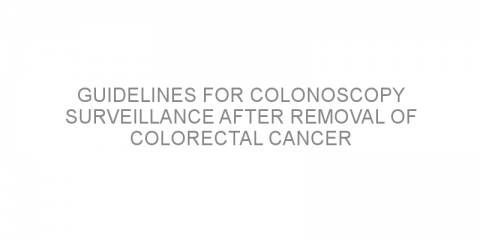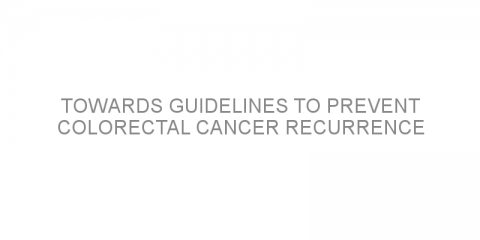In a nutshell This article published in 2013 is written by the American Society of Clinical Oncology (ASCO). It discusses the need for a comprehensive care program for cancer survivors. They also look at how this care program should be available for all survivors irrespective of what cancer treatment they received or what type of cancer...
Read MoreGuidelines Posts on Medivizor
American society of clinical oncology statement: providing high-quality care for all cancer survivors
In a nutshell This article published in 2013 is written by the American Society of Clinical Oncology (ASCO). It discusses the need for a comprehensive care program for cancer survivors. They also look at how this care program should be available for all survivors irrespective of what cancer treatment they received or what type of cancer...
Read MoreWhat is the best frequency of follow up visits for patients treated for localized skin melanoma?
In a nutshell This paper evaluated the proper frequency of follow up visits for patients treated for localized (stage I or II) melanoma. Some background Stage I and II melanomas are localized (confined) to the skin. Patients with stage I or II melanoma are generally treated with a wide excision (surgery to remove the melanoma as well as a...
Read MoreGuidelines for treating early-stage melanoma of the skin
In a nutshell This paper reviewed current guidelines for treating early-stage melanoma (confined to the skin). Some background Melanoma is a form of cancer that originates in cells called 'melanocytes' that give skin its color. Melanoma is aggressive because it has a very high rate of metastasis (spread to distant organs) if left...
Read MoreNutrition and physical activity guidelines for cancer survivors
In a nutshell This article outlines current guidelines regarding nutrition and physical activity for cancer survivors. Some background A cancer survivor is anyone diagnosed with cancer (cured or currently undergoing treatment). Environmental and dietary factors play a major role in cancer development. Adequate nutrition and regular...
Read MoreNutrition and physical activity guidelines for cancer survivors
In a nutshell This article outlines current guidelines regarding nutrition and physical activity for cancer survivors. Some background A cancer survivor is anyone diagnosed with cancer (cured or currently undergoing treatment). Environmental and dietary factors play a major role in cancer development. Adequate nutrition and regular physical...
Read MoreGuidelines for colonoscopy surveillance after removal of colorectal cancer
In a nutshell This review presents the recommendations of The American Cancer Society and the US Multi-Society Task Force on the use of colonoscopy for the follow up of patients with resected colorectal cancer (CRC). Some background Patients who undergo surgery for CRC with curative-intent (complete removal of the cancer) are candidates for...
Read MoreTowards guidelines to prevent colorectal cancer recurrence
This article presents results of recent studies concerning the interplay between the body's chemistry and behavioral factors that influence colorectal cancer (CRC) recurrence. Recent advances in CRC treatment have produced new and promising biological treatments. However, tumors sometimes have unique features that render many of these therapies...
Read MorePreserving Fertility during Cancer Treatment
In a nutshell This paper reviews available options for having children after cancer treatment. The main conclusion is that sperm, egg and embryo preservation techniques can help young women have children after breast cancer treatment. Alternative options, such as ovarian tissue preservation, are also being developed. Some background...
Read MoreGuidelines for the management of prostate cancer in older men
This paper presents specific guidelines, developed by the International Society of Geriatric Oncology (SIOG), for the treatment of localized and metastatic prostate cancer, specifically in older men. Prostate cancer is predominantly a disease of older men (> 70 years). A systematic review of the literature revealed that besides the...
Read MoreSetting Personalized Blood Sugar Targets in Type 2 Diabetes
This article aimed to provide guidelines for setting personalized blood sugar level targets. The main conclusion was that these targets should be flexible and adapted to patients characteristics. Type 2 diabetes usually requires tight blood sugar control in order to prevent and minimize complications. If control is not achieved through lifestyle...
Read MoreControlling moderately elevated blood sugar levels during pregnancy
In a nutshell This article reviewed the outcomes of interventions to control moderately elevated blood sugar levels during pregnancy. Some background During pregnancy, some women have high blood sugar that cannot be classified as gestational diabetes mellitus (GDM) or type 2 diabetes mellitus (T2DM). Elevated blood sugar levels can lead to...
Read More













